The beginning of a new era: Volkswagen introduces the Modular Transverse Matrix (MQB)

- MQB exploits synergies in key technologies across vehicle classes and brands
- MQB makes luxury class technologies accessible to high-volume models
This year, Volkswagen Group will be introducing the Modular Transverse Matrix - the German acronym is MQB - for the Volkswagen, Audi, ŠKODA and SEAT brands. The MQB strategy represents a turning point in the design and production of future automobiles with transverse-mounted engines. The Modular Transverse Matrix standardises many vehicle component parameters - across brands and vehicle classes. At the same time, it offers access to new technologies. The MQB extends from the A0 to the B segment. At the Volkswagen brand, for example, it covers the following models: Polo, Beetle, Golf, Scirocco, Jetta, Tiguan, Touran, Sharan, Passat and Volkswagen CC. In the future, all of these models could theoretically be produced on the same assembly line - despite their different wheelbases and track widths. It will be possible to produce MQB models of different brands together. The first new vehicles to be produced based on the MQB will be the successor to the Audi A3 and the next generation Golf.
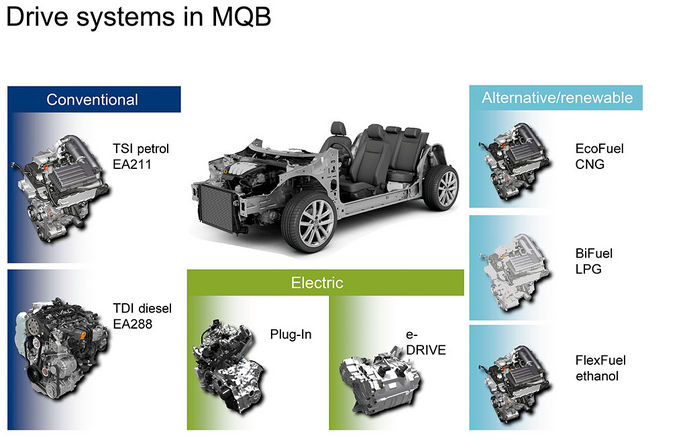
One of the prominent characteristics of the Modular Transverse Matrix is the uniform mounting position of all engines. Two systems integrated in the MQB strategy which play a key role here are the modular petrol engine system (MOB) with the new EA211 engine series (40 kW / 60 PS to 110 kW / 150 PS) - this range includes the world's first four-cylinder engine with cylinder deactivation (ACT) - and the modular diesel engine system (MDB) with the also new EA288 engine series (66 kW / 90 PS to 140 kW / 190 PS). In one fell swoop, the new engine series will reduce the Group's engine and gearbox variants in the MQB system by approximately 90 per cent. Without any negative effects. On the contrary, in addition to standardising conventional internal combustion engines, the MQB also enables an identical mounting position for all current alternative drive concepts without limitations - from natural gas and hybrid versions to the pure electric drive. Volkswagen has already announced the launch of the latter within the MQB in 2013 in the new Golf Blue-e-Motion.
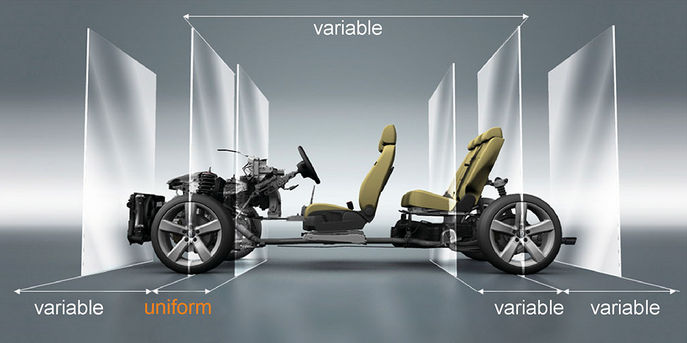
The MQB opens up new opportunities at Volkswagen Group, allowing it to produce high-volume and niche models at the highest quality and extremely competitive costs over the long term and worldwide - vehicles that are individually tailored to the requirements of very diverse markets such as Europe, China and America, as well as emerging markets such as India. In parallel, Volkswagen Group will significantly reduce vehicle weights with the launch of the first MQB model series and will introduce 20 innovations in the areas of safety and infotainment, which until now were reserved for higher vehicle segments.
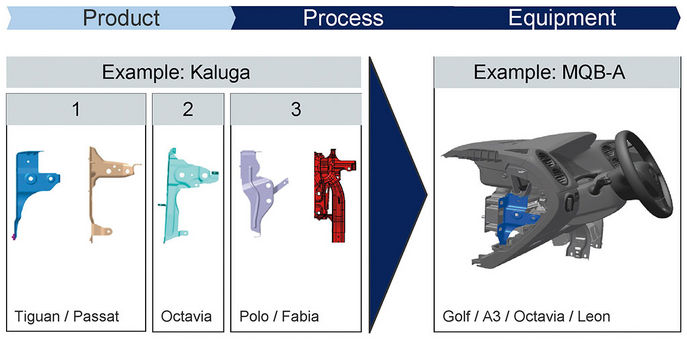
They include the new multicollision brake; after an initial collision, it helps to reduce the intensity of secondary collisions by automatically initiated braking. Very recently, ADAC awarded this system the 'Yellow Angel' award for innovations. The multicollision brake will be standard equipment in the next generations of the Audi A3 and the Golf.
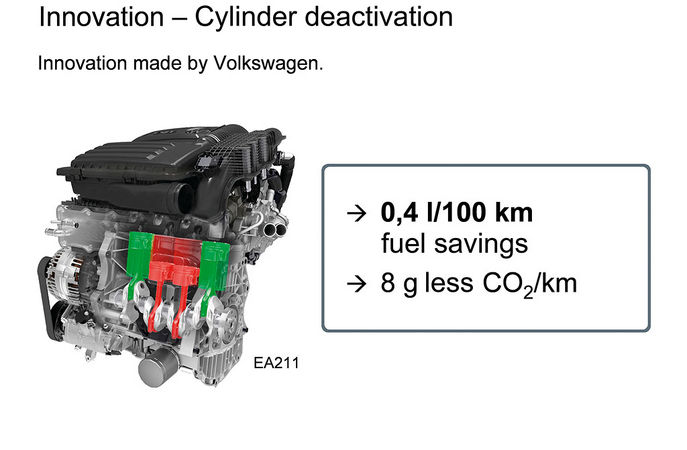
Within the Group, the MQB developed under the auspices of the Volkswagen brand is supplemented by the Modular Longitudinal System (MLB) from Audi, the Modular Standard System (MSB) with Porsche as the competence centre and finally the 'New Small Family' - the most compact vehicle model series with the Volkswagen up!, SEAT Mii and ŠKODA Citigo.
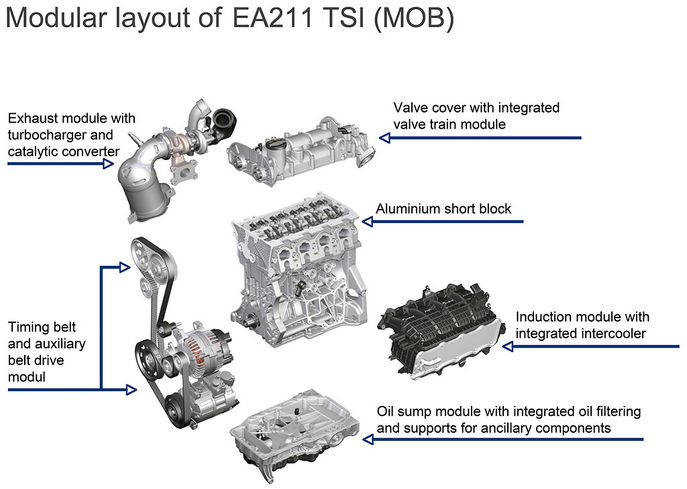
One indicator of the pioneering significance of the modular systems strategy and the innovative potential realised by these new vehicle and production architectures is that Volkswagen was selected as one of five finalists for the 'Innovation Award of the German Economy - The World's First Innovation Award®' for its Modular Transverse Matrix. This prestigious award for outstanding technical, scientific and intellectual achievements has been awarded annually since 1980 by the Economics Club of Rhein-Main and since 2011 in conjunction with the newspaper Frankfurter Allgemeine Zeitung. On 11 February, the prize winners will be announced at the Palais 'Thurn und Taxis' in Frankfurt, Germany, by Günther Oettinger, EU Commissar for Energy. The anticipation grows!
Diskusia k článku
Najnovšie galérie
































 Peter
Peter 
 Markku
Markku 
 Bruno
Bruno 
 Vladimír
Vladimír  Matúš
Matúš